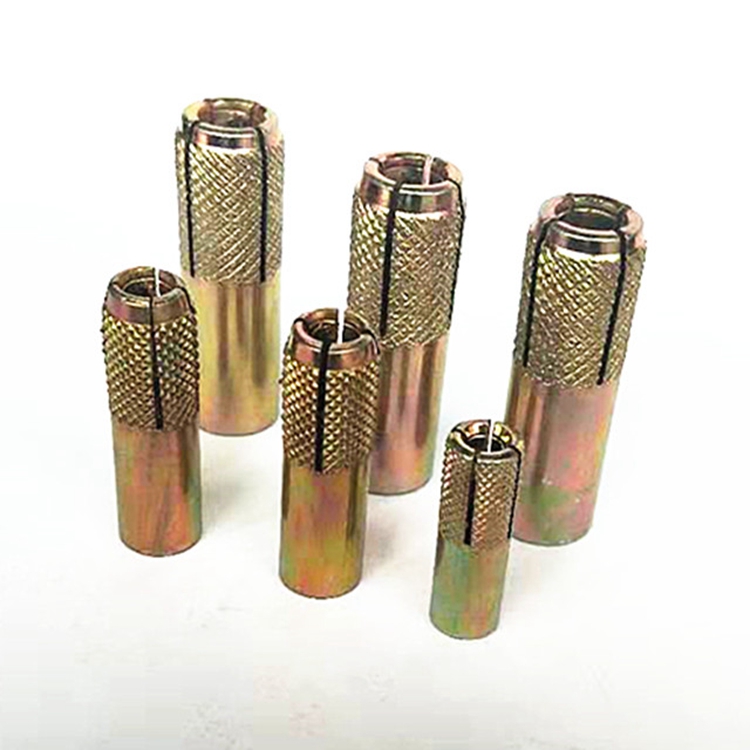high quality hex bolts
Nov . 23, 2024 18:16 Back to list
high quality hex bolts
The Importance of High-Quality Hex Bolts in Construction and Manufacturing
Hex bolts play a crucial role in construction, manufacturing, and various engineering applications. Their unique design, characterized by a hexagonal head, allows for efficient fastening and loosening, making them a preferred choice among engineers and builders. However, not all hex bolts are created equal. The quality of the materials and manufacturing processes used to produce these fasteners can significantly impact their performance, longevity, and safety in critical applications. This article explores the significance of high-quality hex bolts and how they contribute to the success of construction projects and industrial manufacturing.
Understanding Hex Bolts
Hex bolts are fasteners with a hexagonal head and a threaded shaft. They are typically used with a nut and washer to secure two or more components together. The hexagonal head design allows for the use of a wrench, providing excellent torque and making it easier to install and remove the bolt. Hex bolts are available in a variety of materials, including carbon steel, stainless steel, and alloy steel, each offering different properties and strengths suited for specific applications.
The Advantages of High-Quality Materials
One of the primary factors that differentiate high-quality hex bolts from their lower-quality counterparts is the material used in their production. High-quality hex bolts are often made from premium-grade materials that ensure superior strength, corrosion resistance, and durability. For instance, stainless steel hex bolts are known for their excellent resistance to rust and oxidation, making them ideal for outdoor applications or environments exposed to moisture. Similarly, alloy steel bolts are engineered to provide high tensile strength, making them suitable for heavy-load applications.
Manufacturing Processes Matter
high quality hex bolts

The manufacturing process of hex bolts can also greatly affect their quality. High-quality bolts are produced using advanced techniques that ensure precision and consistency. For example, processes such as cold forging can create a stronger bolt by shaping the metal without excessive heating, which helps retain the material's integrity. Furthermore, high-quality hex bolts undergo various quality control tests, including tensile strength tests and corrosion resistance tests, to ensure they meet industry standards.
Potential Consequences of Using Low-Quality Bolts
Using low-quality hex bolts can lead to catastrophic failures in construction and manufacturing sectors. Bolts that do not meet strength requirements can shear under load, leading to structural failures. In applications where safety is paramount, such as in bridges or buildings, the implications of using substandard bolts can be dire, resulting in accidents, injuries, and costly litigation. Furthermore, low-quality bolts may corrode quickly, compromising the integrity of an assembly and leading to premature maintenance costs and disruptions.
Recognizing Quality Hex Bolts
When selecting hex bolts for a project, it's important to recognize the markers of quality. Look for bolts that adhere to recognized industry standards such as ASTM (American Society for Testing and Materials) or ISO (International Organization for Standardization). Additionally, reputable suppliers will provide certifications and specifications for their products, ensuring that you are purchasing high-quality materials.
Conclusion
In conclusion, high-quality hex bolts are indispensable in ensuring the safety, reliability, and longevity of structures and machinery. By investing in superior materials and manufacturing processes, businesses can avoid the pitfalls associated with low-quality fasteners and promote sustainable practices in their operations. As you embark on your next construction or manufacturing project, remember that the smallest components, like hex bolts, play a significant role in the overall success of your endeavors. Prioritizing quality in these fasteners will not only enhance the integrity of your projects but also contribute to the confidence in your work's safety and reliability.
Latest news
-
High-Quality Panel Stud Bolt Reliable Panel Stud Bolt Factory & Suppliers
NewsJul.08,2025
-
High-Precision Fine Thread Locknuts Manufacturer & Supplier Custom Solutions
NewsJul.08,2025
-
PH Imperial Stud Bolt – High Strength Fasteners from Leading Supplier & Factory
NewsJul.07,2025
-
High-Quality Allen Wrench Bolts Leading Factory, Company & Suppliers
NewsJul.07,2025
-
Wholesale Ball Stud Bolt - High Quality Supplier & Factory Price Reliable Wholesale Ball Stud Bolt Company
NewsJul.06,2025
-
High-Strength Alloy Bolts Manufacturer & Supplier Quality Alloy Fasteners Factory
NewsJul.06,2025
